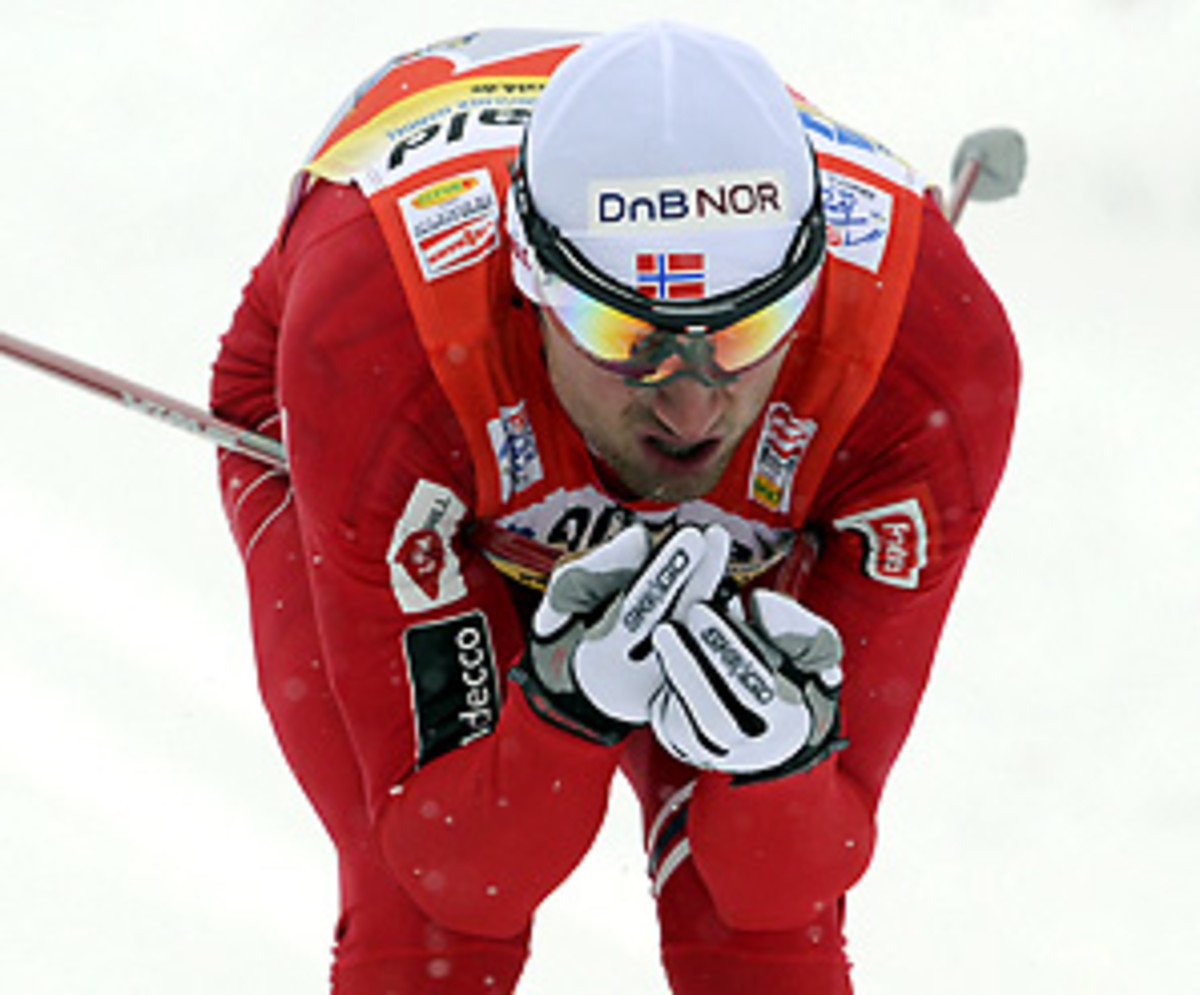Vancouver cross-country preview
Most of America's pro athletes are aerobic pipsqueaks compared to cross-country skiers, who have a resting heart rate of about 30 beats per minute, making them some of the best-conditioned athletes on the planet. What's more, their sport is an offshoot of their day-to-day lifestyle -- ski to school, ski to work -- much as distance running is for the Kenyans or Ethiopians. And for those tracking the medal count, cross-country skiing offers as many chances to win gold (12) as any discipline at the Games. Think few care? When Lillehammer held the 50-kilmeter event at the 1994 Games, a quarter million spectators showed up, some with tickets, others littered along the course or even up in the trees. That was in a country of four million people. Using the one-in-16 ratio, that would equate to roughly 20 million Americans attending the same sporting event.
Think cross-country skiing is a peaceful, boring sport? Keep an eye on Norway's Petter Northug Jr., whom other skiers have accused of being "disrespectful," "dangerous" and "idiotic." Some say the world cup leader carves out room for himself by cutting off other skiers or swinging his poles abrasively. Northug pays the critics no mind. He plays in a lower-level soccer league during the summer and was tossed from a game a few years ago for kicking one of his opponents, and has defied coaches who have advised him to stop playing for fear of injury.
U.S. cross-country athletes may not medal this time around, but Kikkan Randall gives the team its best chance. The 27-year-old Alaskan, known as "The Kikkanimal," is the first woman to win a world-cup race (the individual sprint in Rybink, Russia in 2007) and medal at the world championships (silver in the sprint in Liberec, Czech Republic in 2009) in her sport. In between those achievements, Randall nearly had to give up the sport after suffering a massive blood clot in her leg.
To date, 72 Olympic gold medals have been awarded for men's cross-country skiing events. All but four have gone to the Norwegians, Russians/Soviets and Finns. Perhaps no other sport in the winter or summer Games has been so thoroughly dominated, for so long, by so few nations.
The world's top female skiers come from a much more diverse group of nations than do the men. Consider that the top five world cup leaders all come from different countries: Justyna Kowalczyk (Poland), Petra Majdic (Slovenia), Aino-Kaisa Saarinen (Finland), Arianna Follis (Italy) and Kristin StoermerSteira (Norway). In the top 15, you'll also find Swedes, Russians, a Slovak and a Ukrainian. Amazingly, though Germany often contends for the top spot in the medal count, there are no German women among the top 20 in a sport that provides the greatest chance to amass medals.
Men:15K free (Feb. 15) Individual Sprint Classic (Feb. 17) 30K pursuit (Feb. 20) Team Sprint Free Final (Feb. 22) 4x10K relay classic free (Feb. 24) 50K mass start classic (Feb. 28)
Women:10K free (Feb. 15) Individual Sprint Classic (Feb. 17) 15K pursuit (Feb. 19) Team Sprint Free Final (Feb. 22) 4x5K relay classic free (Feb. 25) 30K mass start classic (Feb. 27)





